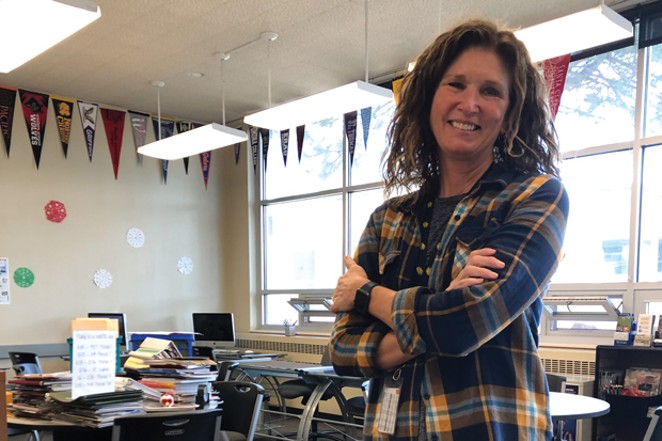When I was a high school junior, my "college counseling" consisted of sitting down with my school counselor, who asked me what my future plans were and reminded me of upcoming dates for the ACT and SAT. Selecting a college, back in the '90s, involved paging through pamphlets sent by regional schools through that throwback called "the mail."
That might be a familiar tale for a lot of parents—but it's a far cry from current high school students' experiences. Students in local schools now have a wealth of information at their fingertips, thanks to the internet, and get one-on-one support through Future Centers.

"The landscape has changed so much since we all applied," said Anne Sjogren, a former educator who now runs her own college-counseling business, Sage College Advice, in Bend.
"At the most selective schools, it has become more competitive, and the process overall has become more complicated," adds Porte Lewy of Lewy College Consulting in Bend. "However, there are hundreds of excellent colleges and universities that admit 70% or more of those who apply, so for some students it's not all that different than it used to be."
In-School Support
Bend-La Pine Schools has a resource hub in each high school for kids exploring college options. At Summit and Bend High, this resource is known as the Future Center, the equivalent of a College and Career Center—as it's known in other schools, including Bend's Mountain View High. At La Pine High, a school-to-career program manager helps guide students. The Future Center caters to all students—even those who may not be bound for college.
Stacy La Duke, who owns La Duke College Counseling in Bend says, "Receiving a four-year degree and/or beyond is not for everyone and that is okay!"
Lewy adds, "There are many avenues to higher education: two-year colleges, four-year colleges, vocational programs, apprenticeship programs and on the job work experience. One is not better than another, and it can take time for kids to find their way."
With Bend's "big three" high schools having large populations—each with over 1,400 students —and only a handful of counselors at each, suffice it to say that taking some of the load of future planning off the counseling team is a win for both students and counselors.
Bend High's Future Center has two staff members who keep things humming and dozens of volunteers who serve as mentors, meeting with students one on one to guide them through exploring careers that pertain to their interests, finding colleges or other opportunities that match these careers and walking them through the steps of obtaining financial aid. At Bend High, mentors meet with each student at least twice in the spring of their junior year and twice again in the fall of senior year.
Prepping for college involves remembering a lot of "dates"—including dates for testing, application deadlines, scholarship deadlines and more. Thus, some of the advice is tangible—offering reminders for these—while there's also the benefit of providing an overall sense of support.
In addition, the Future Center hosts myriad workshops, including Resume Writing, FAFSA Workshops, workshops on specific professions and more. Students have the opportunity to meet with military recruiters and college reps for more focused conversations.
More Private Support
Sjogren—who once volunteered in the Future Center at Summit High, understands the value of these centers.
"Future Centers are amazing resources," Sjogren said.
Lewy agrees, adding, "Private IECs [individualized educational counselors] offer more individualized guidance. This includes understanding the differences in types of colleges and helping the students figure out what they want from their college experience," she said.
Through her services, La Duke takes the time to get to know the student and family and support them with their goals. "I create a personalized college list, assist with essay development and offer financial aid guidance to fit the needs of the family."
"It starts a lot earlier than most people think," Sjogren said, noting that the process of "framing the narrative" that colleges want to see in a student's profile has to start far earlier than junior year, when students begin checking in at Future Centers. Lining up volunteer opportunities or taking courses that colleges want to see should start freshman year, Sjogren said.
La Duke agrees that starting the process early is necessary and allows "students to enjoy their senior year and not be stressed out in the fall with college applications."
Overall, with her services, which Sjogren estimates to cost between $1,500 and $3,000, "The goal is to have kids have a reflective process and to really figure out who they are, and a place that's going to help them grow."
Oregon College Savings Plan
Start Planning for College Now!
The most important step parents can take in preparing for their children's post-secondary education is starting a 529 plan. In Oregon, this is the Oregon College Savings Plan, which is a state-sponsored plan that comes with real tax benefits. Learn more at: oregoncollegesavings.com







